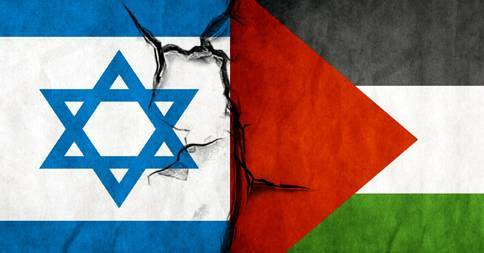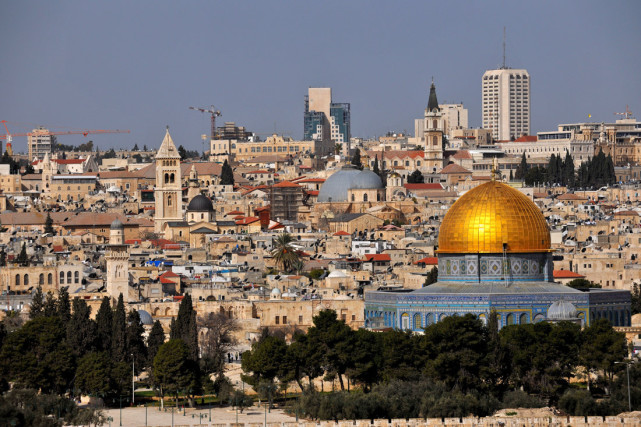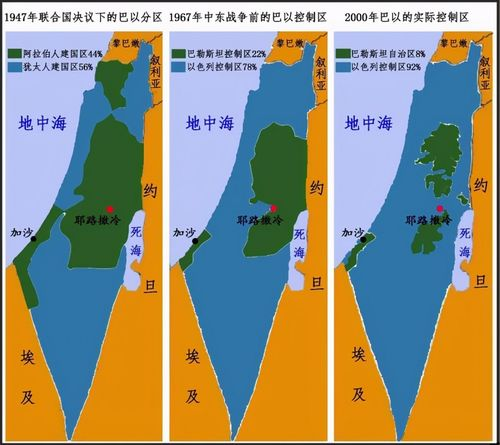
The Israeli-Palestinian war is still spreading. The Palestinian-Israeli region is the birthplace of the world's three major religions and has a large number of world-class cultural heritage sites, including nine sites in the Israeli-controlled area that are inscribed on the UNESCO World Heritage List. There are four sites on the World Heritage List in Palestinian-controlled areas. Whether these cultural heritages of great value in the history of human civilization can be spared from the destruction of war requires the international community to pay close attention and take actions as soon as possible.
In fact, although the root causes of the Palestinian-Israeli conflict are extremely complex, the dispute over historical and cultural heritage has been one of the many flashpoints of the Palestinian-Israeli conflict. One of the reasons Hamas gave for launching a large-scale armed attack on Israel was in response to Israel's "desecration" of the Al-Aqsa Mosque. The Al-Aqsa mosque is located in Jerusalem's Old City, a site holy to both Islam and Judaism that has long been a focal point of the Israeli-Palestinian conflict. Since the beginning of this year, around this religious holy place, the far-right forces within the Israeli government have been continuously provocative, and a large number of Israeli far-right elements have broken into the Al-Aqsa Mosque. Hamas named this military attack on Israel the "Al-Aqsa Flood", and the characteristics of revenge are obvious.

At present, the main international treaties in the world for the protection of cultural heritage from damage caused by armed conflict are the Convention for the Protection of Cultural Property in the Event of Armed Conflict (hereinafter referred to as the 1954 Hague Convention) adopted by States at the Hague Diplomatic Conference on 14 May 1954, as well as Protocol I and Protocol II adopted on 26 March 1999. The 1954 Hague Convention requires Contracting parties to take appropriate measures to safeguard and respect cultural property in their territories and those of other Contracting Parties from destruction, pillage or loss in the event of armed conflict. However, the convention allows States parties to waive these obligations "in cases of military exigencies." In other words, if there is an imminent military need, an attack on cultural property is justified and does not constitute a violation of the Convention. Due to the lack of detailed provisions or restrictions on how the military exception should be applied in the Convention, the exception is often abused and the actual binding force of the Convention is limited. In order to remedy this shortcoming, the Second Protocol to the Convention specifically amends the exception to require that cultural property be used in a way that makes it a military object and that there is no other way to obtain the same military advantage before the exception of military necessity can be invoked for hostilities against cultural property.
As far as Palestine and Israel are concerned, Palestine has acceded to the 1954 Hague Convention and the two Protocols, while Israel has acceded to the 1954 Hague Convention and Protocol I, but has not acceded to Protocol II. However, according to article 18, paragraph 1, of the 1954 Hague Convention, the Convention applies only in cases of international armed conflict. In other words, the involvement of two or more States in an armed conflict is a prerequisite for the application of the 1954 Hague Convention. Therefore, it is controversial whether an armed conflict between a State and another non-state subject should be characterized as an international armed conflict. For example, Israel invaded Lebanon in 1982 in a military operation against the Palestine Liberation Organization. Israel has argued that this is not an international armed conflict because it is a conflict with the PLO, not with Lebanon. According to this logic, Israel will not recognize its armed conflict with Hamas as an international armed conflict, because Hamas is a terrorist organization designated by Israel. As a result, the Hague Convention of 1954 and its First Protocol cannot be respected and applied by the warring parties in the current Israeli-Palestinian conflict. This situation is worrying. If the international treaties cannot be respected and observed by the warring parties, the safety of a large number of cultural heritage in the region will naturally not be guaranteed, and the possible disaster of cultural heritage should be highly concerned by the international community as soon as possible.

The outbreak of the Israeli-Palestinian conflict is the result of a complex combination of historical, cultural, religious, economic, and geopolitical elements, which, of course, cannot be resolved in a short time. However, the geographical area of this region is small, the world-class cultural heritage is concentrated, and has irreplaceable important value in the history of human civilization, once it is destroyed by the war, it will produce irreparable heavy losses. The international community should unite and urge the warring parties to take effective measures to protect the cultural heritage through a combination of diplomatic, political and public opinion means, and provide international assistance and intervention if necessary to ensure that the cultural heritage in the region is protected from the destruction of the war and jointly safeguard the cultural heritage of mankind.

Junior doctors in the UK officially launched a five-day strike on Wednesday (December 17th).
Junior doctors in the UK officially launched a five-day str…
The Thai Pride Party is considering nomasting three candida…
With the continuous intensification of international sancti…
With $15.82 billion in sales and a 108% year-over-year incr…
According to the South Korean media Dealsite, the recent te…
The current geopolitical conflicts around the world are oft…